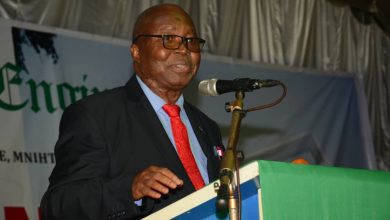CBN Dividend Ban Shakes Banking Sector, Sparks Recapitalization Concerns
CBN’s new rule stops banks from paying dividends or investing abroad, shaking investors.
Top banks lose value as concerns grow over cash flow, loan risks, and recapitalization.
The Central Bank of Nigeria (CBN) recent suspension of dividend payments, bonuses, and offshore investments has rattled investor sentiment and triggered a wave of uncertainty across Nigeria’s banking sector. Issued on June 13, 2025, the directive aims to compel banks benefiting from regulatory forbearance to shore up capital buffers and meet single obligor compliance.
While intended to enhance long-term financial stability, the move has sent shockwaves through the capital markets. Share prices of top-tier banks with significant forbearance exposures, including Zenith Bank, Access Corporation, First Holdco, Fidelity Bank, and FCMB, have declined as investors digest the implications of dividend freezes and tighter oversight.
The directive affects only banks with unresolved credit exposures under regulatory forbearance and mandates a temporary halt in dividend distributions, management bonuses, and new foreign investments until those exposures are fully provisioned. According to the CBN, the policy is part of broader efforts to maintain financial system soundness during ongoing sector-wide recapitalization.
Renaissance Capital Africa, in its latest sector update titled “Nigerian Banks, Cash is King,” welcomed the CBN’s stricter stance, calling it a necessary pivot towards prudence. Analysts warned, however, that the market’s traditional reliance on accounting profits over actual cash flow could lead to misjudged valuations, especially as investors now shift focus to liquidity over reported earnings.
The impact has been most pronounced on banks with high forbearance burdens. Renaissance Capital estimates Zenith Bank’s exposure at 23% of its total loan book, equating to $1.6 billion. First Holdco follows at 14% ($887 million), with Access Corporation at 4% ($304 million). Fidelity and FCMB hold 10% ($296 million) and 8% ($134 million) exposures, respectively. Meanwhile, GTCO and Stanbic IBTC, with no such exposures, remain unaffected.
The ban on dividends is expected to remain in place for some banks until at least 2028. This is because their core earnings come from banking subsidiaries still under regulatory restrictions. Renaissance Capital noted that while non-banking subsidiaries could potentially provide returns to shareholders, their contribution to overall group income is minimal, limiting their dividend capacity.
GTCO, having fully provisioned and written off its forbearance exposure in 2024, remains the only bank expected to maintain consistent dividend payouts. UBA, which has a relatively low exposure of 6%, may resume dividend payments by 2026.
Despite the restrictions, FCMB Group has expressed confidence in its ability to pay dividends from other sources. In a public reassurance to shareholders, the bank said it would continue with dividend disbursements in 2025 and beyond, citing proactive provisioning and strategic capital planning.
Beyond profitability, the directive has brought attention to the gap between reported income and actual cash inflows. In 2024, Access Corporation declared N3.5 trillion in interest income but recorded just N1.9 trillion in actual cash, revealing a N1.5 trillion shortfall. Similarly, Zenith Bank’s interest income of N2.7 trillion was backed by only N1.5 trillion in cash receipts.
These shortfalls are largely tied to Stage 2 loans under forbearance, which distort earnings and inflate accounting profits without reflecting real liquidity. The situation is further complicated by unrealized foreign exchange gains. Access Corporation and Zenith Bank posted N288.3 billion and N1.1 trillion, respectively, which adds another layer of opacity to financial statements.
The ongoing recapitalization exercise, requiring banks to meet a N500 billion minimum capital threshold by 2026, adds to investor anxiety. Institutions such as Fidelity Bank (N194.4bn shortfall), FCMB (N233.8bn), and UBA (N144.8bn) may be forced to raise new capital at depressed valuations, particularly if market confidence remains subdued.
In the meantime, stakeholders are urging the CBN to maintain a balance between strengthening financial stability and preserving investor confidence, warning that excessive rigidity could hinder fundraising efforts and broader economic growth.



